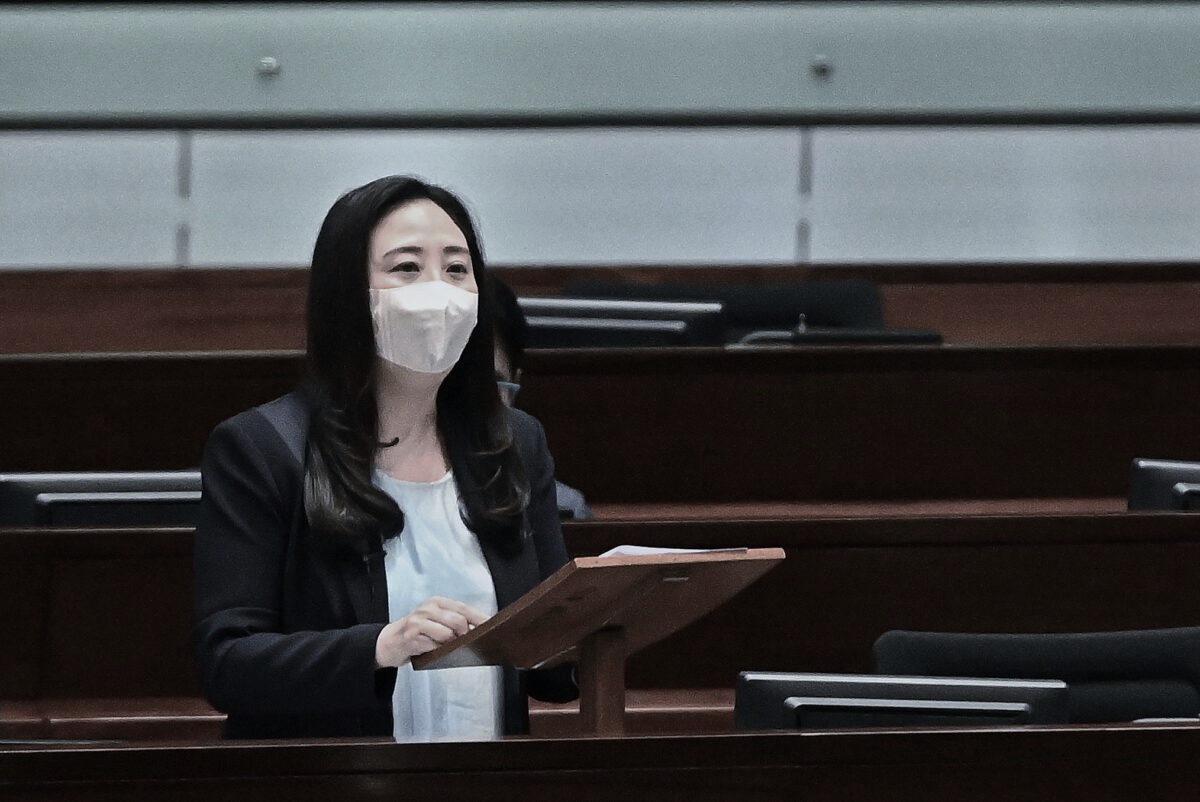Several pro-Beijing lawmakers in Hong Kong took aim at the spiritual practice Falun Gong on July 3, urging the government to ban the discipline under the city’s controversial national security law.
Their call was met with condemnation by the city’s Falun Dafa Association, which called it an attempt to extend the Chinese regime’s decades-long persecution of the practice outside the mainland.
Targeting Falun Gong
During a Legislative Council session on July 7, pro-Beijing Hong Kong politician Elizabeth Quat claimed that the spiritual group was involved in spreading “subversive opinions” through its public activities in the city and called on authorities to ban the practice.
The activities in question included “setting up street counters and staging exhibitions, distributing publications, and conducting parades,” which Quat claimed promoted “anti-China ideology.”
Falun Gong practitioners in Hong Kong, as well as many other cities around the world, can often be seen distributing materials to passers-by in a bid to raise awareness about the CCP’s persecution and human rights abuses and to elicit public support for an end to the suppression.
Another pro-Beijing politician, Wong Kwok-kin, asked the government to investigate the source of Falun Gong’s funding and freeze its assets if necessary.
In response to these questions, Hong Kong Security Secretary Chris Tang said authorities would probe the matter, without going into specifics.
“Whether Falun Gong has violated the Hong Kong national security law, there are numerous accusations in the society. The law enforcement agencies will definitely look at them closely. These allegations could possibly lead to certain legal proceedings. So I shall not comment publicly on an individual organization,” Tang said.
Condemnation
The city’s Falun Dafa Association denounced the campaign mounted by the pro-Beijing lawmakers.Sarah Liang, spokeswoman for the association, said that for more than 20 years, local practitioners have used nonviolent and peaceful ways to expose Beijing’s persecution.
She dismissed accusations of illegal fundraising activities, saying that Falun Gong practitioners act as volunteers, and adding that all of the practice’s books are available to download for free online.
The Falun Dafa Association is also legally registered in the city, and adherents are protected by Hong Kong’s mini-constitution, which guarantees freedom of belief, she said.
On July 1, a 50-year-old Hong Kong man stabbed a policeman in the back and then stabbed himself in the chest with a knife. The attacker was sent to the hospital but died about an hour later. The policeman received surgery to repair a punctured lung at the hospital.
The assailant, Leung Kin-Fai, a purchasing director at local beverage company Vitasoy, has not been identified by police or others as affiliated with Falun Gong.
Liang wasn’t surprised by the groundless accusations linking Falun Gong to the knife attack.
The CCP “often uses very nonsensical ways to distort and slander Falun Gong,” she said, adding that the falsity of the claims was self-evident.
The actions of the pro-Beijing lawmakers were the first step in a premeditated pressure campaign targeting Falun Gong, according to Feng Chongyi, an associate professor in China Studies at the University of Technology in Sydney.
“Everything might appear to be done in accordance with the law,” Feng told The Epoch Times. “But beneath it was a step-by-step plan to make Falun Gong disappear in Hong Kong. This is obvious.”
For an official to openly target a religious group without sufficient evidence reveals “a high degree of bias” and is a cause for alarm, said Tseng Chien-yuan, a professor at the National Central University in Taiwan and board member at the nonprofit group New School for Democracy.
Years of Harassment
Falun Gong practitioners in Hong Kong have long been targeted by local groups backed by the Chinese regime.
“In fact, how much freedom is left in Hong Kong?” she said.




